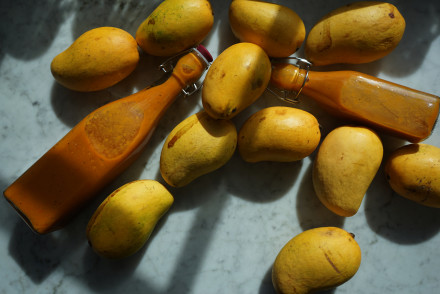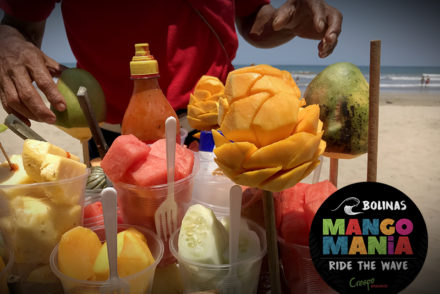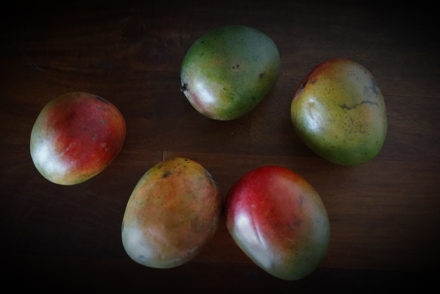Decent sales, sincere loyalty & extreme #MangoJoy cultivated despite production hurdles
This season was one of the most peculiar I’ve experienced, but ultimately, it turned out to be one of the best in terms of ROI. Despite numerous trials and tribulations, our customers and consumers stood by us, and together we delivered exceptional mango experiences at the retail level. Shoppers enjoyed decent prices, and we provided plenty of culinary and commodity education. We sold more overall, primarily because we diversified the variety of mangoes available. Although Mexican production was slightly down, the heightened excitement and consumer engagement made sales move faster than in previous seasons. The season is ending this week, but there is plenty to be pleased about in terms of how participants of our program cultivated #MangoJoy and reaped great rewards despite the climate related obstacles. I take more about the rewards of the season HERE.
For now here’s a quick recap or a meander down the seasonal memory lane.
Everyone’s favorite Ataulfo Mangoes had an early but slow start. Our initial CROP REPORTS highlighted the uncertainties caused by windstorms right after the new year. Gaps were prevalent at the beginning, and the situation was confusing. In retrospect, most predictions were off across all regions, not just in the south. However, despite the complexities, the onset of the season and Ataulfos delivered mega doses of #MangoJoy to consumers, proving my main point of the season: consumers were not disappointed, no matter how challenging it was.
As the season progressed, drought conditions remained severe, leading to smaller fruit overall which continued all season long. However, this smaller size turned out to be ideal for the organic sector, with optimal sizing in the sizing of 8-9-10 and 12cnts ranges. While it seemed like there was an abundance of fruit on the trees, this wasn’t really the case—especially for the round mangoes. This puzzled me until a great conversation with mango expert Dr. Noris Ledesma shed light on the situation. She explained how the lack of blooming in many Floridian varieties (like Tommy, Kent, and Keitt) was linked to climate change. This also clarified why Ataulfo, Mallika, and Nam Doc Mai mangoes were thriving.
It wasn’t until we reached the southern Sinaloa region that we finally saw serious amounts of #MuchosMangoes and a decent break in pricing. This area is the most developed for large-scale production, so it wasn’t surprising to learn that even though overall that region was down, we had plenty of mangoes. Amidst the good feeling of bounty, we were reminded of the old saying, “when it rains it pours“—literally. The rains became too intense for the Kent mangoes, which are particularly sensitive during their development stage, leading to many orchards being skipped entirely. Fortunately, the Sinaloa Keitts weathered the storm.
In Mochis, the usual gigantic fruit was small, again due to the drought, which turned out to be a blessing. It allowed prices at the register to stay in their Mango Mania form for much longer. The season, as we are all experiencing is ending abruptly—not due to the usual rain and poor quality—but because all the fruit reached maturity and needed to be picked. And picked it was. All that fruit has been picked, packed, and is being sold this week, giving our customers and retailers a few more weeks of what many describe as one of the tastiest fruit of the season. That’s what the heat does, after all—it creates more sugars (BRIX).
All things end and so with that sweet fruit, we conclude the Crespo Organic Mango season!
I will continue to report all off season on all things mango. Currently I am in the process of moving back to CA from a few years in southern Missouri. Missouri taught me a lot about specific problems of the mango supply chain that I feel were invaluable for my expertise. I do however look forward to having better access to fresher, nicer mangoes!










No Comments